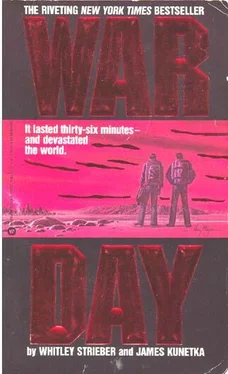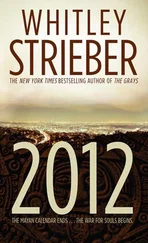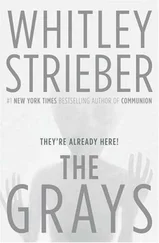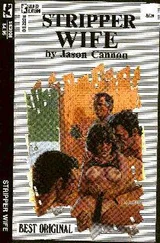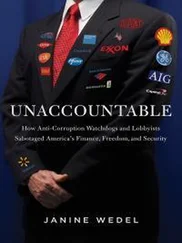The spirit of the frontier, perhaps, still influences our habits.
There is at Independence Hall a daily schedule of recitations of the Declaration of Independence, the Bill of Rights, and the Gettysburg Address. This is a program developed by the Philadelphia school system, and the speakers are children.
We listened with the rest of the crowd to the hasty voice of a girl reciting the Bill of Rights. Her eyes darted as she spoke. She was as frail as a bird, and her tone was high and thin, but something in her delivery came from deep within her, and set the breathless, mumbled words to ringing.
I had been thinking long thoughts of children as we walked through Philadelphia’s quiet streets.
Now, here in the station, I was surrounded by children who had not gotten the chance to double up. Quiet children, sitting in rows on the floor. Here and there, one slept in another’s lap. Older kids attended babies. The cries of babies echoed in the huge waiting room. A supervisor moved among the rows.
There was none of the hubbub of childhood among these kids.
Their situation was serious, and they knew it.
They were all dressed identically, in white T-shirts and jeans, girls and boys alike. On the back of their shirts were stenciled their names, years of birth, blood types, TB susceptibilities, and Pennsylvania ID numbers. I began noting down a sampling of their names, but stopped when I saw the way Jim was leaning against the wall. We’d both dreaded getting sick on our journey. We were exhausted from too many nights in trains and too much third-rate food. Stepping between the rows of kids, I went to him.
“I’m sorry. I’m nauseated. I’ve got to lie down.”
“No—let’s go outside. You’ll be better.”
I did not say it, but I knew what had happened to him. The over-powering odor of unwashed people was stifling in that station. Out on the street he began to feel better.
“Jim—”
He stared off into the darkness. We both understood the stakes here. This scene was being repeated commonly all over the country. How many orphans are there? What are the support programs like? What are we doing to protect the future?
We did not speak, not until long afterward, when we were on the train. The children were jammed into eight passenger cars behind us. We were in the through-car. Ahead of us were three “state cars” for people planning to leave the train in resident-only states, such as Georgia, the Carolinas, and Virginia.
“I want to find out about the kids,” Jim said.
“You mean why they’re on the train?”
“Why they’re on the train.”
Their presence worried him too. It must be an enormous undertaking to move so many children. Why was it being done?
We started moving back toward their cars. When we opened the door we saw dim lights and hard seats, and smelled their odor again. These were not the normal Amtrak cars, but old commuters with ceiling fans and dim bulbs, obviously put on at the last moment. They rattled and swayed. The night wind bellowed in the windows. The trainmen were giving out blankets and sheets, which the children made into beds on the seats and the floor. There was a gravity among them that was deeply unsettling, as if this bedmaking were the most important thing in the world, and these blankets were valuable beyond price.
Other passengers were coming back too, bringing food and water bags and whatever else they could spare. Soon the cooks appeared, bearing what later proved to be every scrap of Amtrak food in the train. But there were so many of them, and I know that the great majority must have gone hungry that night.
Jim found one of the adult supervisors at the rear of the car.
She could have been thirty years old, or fifty, it was hard to tell. A little boy slept with his head in her lap, a girl of twelve with her head on her shoulder. She held a baby in her arms. Another baby lay in the girl’s arms. “We’re writing a book,” Jim said. “Can we talk to you?”
She smiled. “I guess so, if you don’t wake anybody up. I got some mighty tired kids on this train.”
“Are you the only supervisor?”
“Lord, no! I’d be dead! There are ten of us with this group, one for every hundred kids.”
“How did you get your job?”
“Well, I have my Master’s in early-childhood education from Bank Street, and I have a degree in child psychology. But I didn’t get the job on qualifications. I was with the State Department of Social Work before the war. Afterward we found ourselves with tremendous numbers of orphans. It was natural that anybody in the Welfare Department who knew anything at all about kids, or just liked them, would end up doing what I’m doing.”
“Why are they on the train?”
She smiled again. “These children are being transferred to an institution in Alabama. We’ve been informed by the Department of Agriculture that there’s going to be another grain emergency by April, so we’re evacuating them to a better-fed area. We do not want to go through another famine the way we went through the last one. My unit buried an awful lot of children. That will not happen again, not if there is any way on God’s earth to prevent it.”
We returned to our own car. An hour passed. For a while I stared at my own reflection in the window. Haggard, thin, cadaverous even. I hadn’t shaved since I was at Quinn’s, in California. I was greasy and grungy and totally exhausted.
Jim read the Philadelphia Inquirer and then slept I felt frightened, as if the delicate balance of the future were swaying and trembling with the movement of the train.
When I was twenty-two I went this way in a Volkswagen, on my way home from New York to San Antonio for a family reunion.
Years later I went in my Mercedes, through the Smokies and across the back of the South, through the piney woods of Arkansas and the hot plains of northeast Texas.
I went also in a bus, broke, hungry, too. And work one year when it was too long between checks from publishers.
My life has been punctuated by journeys between Texas and New York.
I can remember coming this way with my father, and seeing barefoot children with fishing poles in the Cumberland Valley and longing from my luxurious Pullman drawing room to be one of them.
To be a child.
I am tired of trains, tired of travel. Now that it’s almost finished, I wonder what will become of this new book. These days it is not easy to gain publication, and the distribution of books is a difficult process.
I am very used to the rattle of trains, the smell of trains, the mood of travelers. In these past six weeks we have seen a fair sample of the country. And we have learned some things. America is changing, profoundly and probably irrevocably. In a few years there will be a kind of country here with as few references to us as we have to, say, the Kennedy years. Maybe fewer.
There is death in this, certainly, and the collapse of old ways.
But there is also this other thing, which I heard again and again, in the voices along the road. I know it, and yet I cannot seem to put it down in words, except that it is America in us, the promise and the children. It is the common dream of gold—the golden valley, the golden door, the gold in the hills, the gold at the end of the rainbow.
The night deepens and the old diesel’s horn sounds and sounds.
This is another of those bumpy, slow routes around one of the dead areas, in this case Washington.
I close my eyes. Music comes into my mind, soft and slow, the music of the swaying car and the dark. I remember, so well, when I was a child.
When Whitley and I arrived in New York, I realized that, emotionally, I had reached the end of the journey. For me, New York exemplified the whole experience—both the folly of the war and the drama of our effort to recover.
Читать дальше
